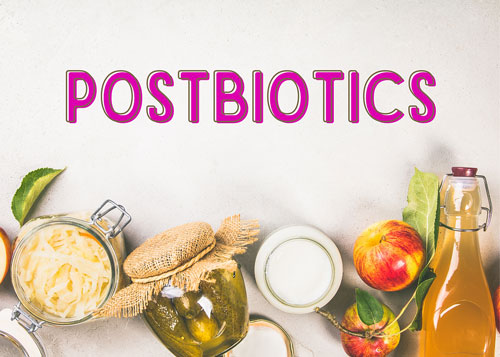Have you ever wondered why doctors and nutritionists usually maintain, ‘Happy gut, happy you’? Our gut health depends on a delicate system of good bacteria. This ecosystem consists of a healthy balance of useful bacteria and microbes that form a part of our gut microflora. These ‘good’ bacteria are crucial to digestion and help break down and extract essential nutrients from our food into our bodies to maintain optimal health.

Understanding Pro and Prebiotics
Probiotics are living strains of good bacteria in certain foods like yogurt, sauerkraut, and some cheeses. Eating these foods helps maintain the balance of good gut bacteria – a delicate ecosystem of about 100 trillion microscopic organisms – to an optimal level, thus ensuring proper digestion and assimilation of all food and nutrients. Prebiotics, on the other hand, function as food for the probiotic bacteria. For example, foods with a healthy amount of fiber, such as whole grains, vegetables, and beans, when broken down in the body, create byproducts that further promote the optimal health of probiotics to help them grow and thrive within your gut.
What are Postbiotics?
Kazuya Mitsuhashi, an R&D manager at Daicel Corporation, Japan, defines the postbiotic mechanism as a process that delivers compounds to the gut without being affected by the presence or absence of a particular microbe.
Postbiotics are byproducts left behind after the body digests both prebiotics and probiotics. These are usually inactivated microbial cells or their components which provide various health benefits.
Nutrients such as vitamins B and K, amino acids, and antimicrobial peptides (that slow down proliferation of harmful bacteria) are commonly produced postbiotic components in our body. Certain enzymes, cell wall fragments, exopolysaccharides (biomacromolecules made up of carbohydrate residues secreted by a microbe into the surrounding environment), and bacterial lysate mixtures are also grouped under this category. Moreover, some postbiotic substances, called short-chain fatty acids, help healthy bacteria flourish.
How does one maximize these healthy byproducts, then? Through diet, of course! Fermented foods are a powerhouse of good bacteria, and including foods such as kefir, tempeh, kombucha, yogurt, and kimchi in your diet may help enhance overall health.

Key Health Benefits:
While the concept of postbiotics is relatively new, these have been around for a long time and are associated with a number of health benefits. Recent studies have highlighted how postbiotics have benefits that could help boost immunity and protect against infections like common cold. Cell wall fragment class of postbiotics could potentially enhance the production of anti-inflammatory chemicals in the body, bringing down inflammation and bolstering immune response. Several others have been studied to help treat diarrhea, mitigate symptoms of irritable bowel diseases and even help decrease the intensity of some allergens.
Future-Ready Supplement:
While prebiotics and probiotics are ubiquitous in several food and beverage products, postbiotics are being touted as the future. Last year, a large hike was observed in Google search about postbiotics, a 1300% increase in total searches, to be precise. Now, this growing demand can be attributed to multiple reasons. The key is that postbiotics have much fewer challenges in comparison to probiotics.
In terms of shelf life and storage, postbiotics ranked far better. This combination of benefits is especially useful for developing countries, where it may be harder to manipulate and maintain production and storage conditions. As these components are not live, they lend themselves easily to any microbial profile, unlike probiotics which are likely to react in a similar case.
Postbiotics are quickly gaining popularity among the health-conscious. The inherent non-viable nature makes these components more capable of meeting gut needs immediately. It would not be remiss to say that postbiotics could be the key to bridging the gap between food, microbiology, and customized treatment plans.


